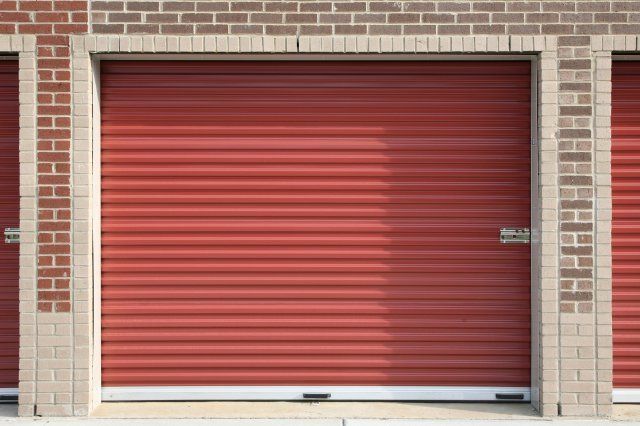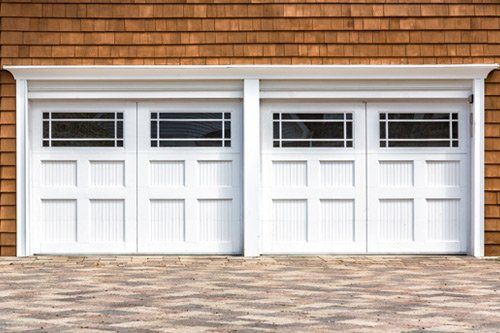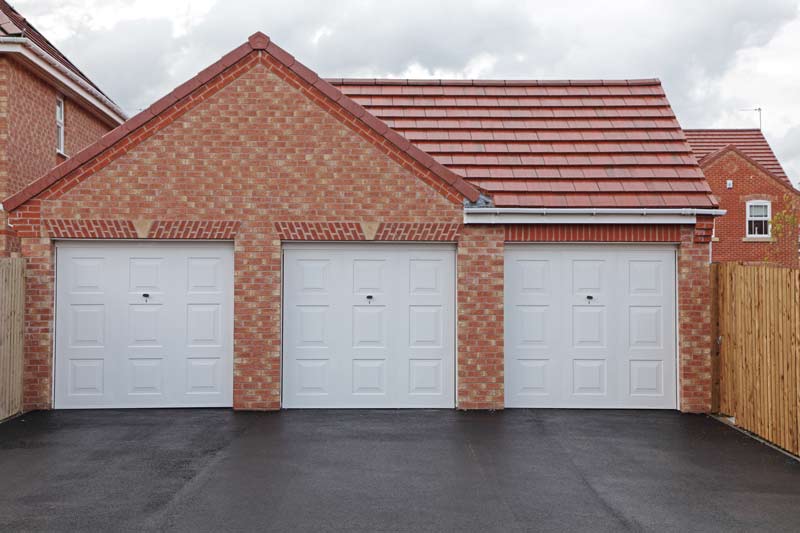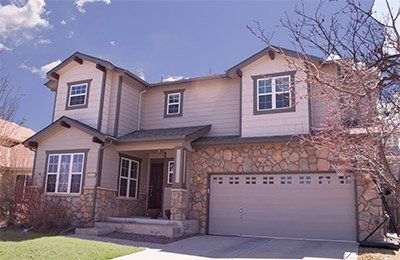Admin • November 3, 2017
Garage Door Acting Strange? 4 Malfunctions That Are Often Repairable
Many people never realize just how important a garage door is until it fails. If your garage door has been engaging in somewhat questionable behavior, you don’t need to panic. A malfunction with the door doesn't necessarily mean that a complete replacement is necessary.
Learn just some of the scenarios in which you may be able to avoid a replacement and find the solution you need in the form of a repair.
Door Vibrates When Moving
If your garage door vibrates or shakes as it moves along the track, this could be the result of damaged or worn lifting cables. Lifting cables are basically support devices that help with the process of lowering and raising the door along the track.
However, a garage door will not move as smoothly along the track when these cables are worn, which is the cause of the vibration you notice. Lifting cables are just one of the many components of a door that tend to wear from everyday use; however, corrosion may also be the culprit.
To ensure your safety, it's best to stop operating the door until you determine if the lift cables need to be replaced.
Door Won't Close
You're rushing out the door to get to work, and just before the door closes all the way, it stops and reopens. All modern garage door systems are designed with heightened safety measures that come in the form of photo eyes, the small devices located on each side of your garage door track.
Whenever the laser-like signal transmitted between these two lights is not aligned or not transmitting correctly, the door will not close. If one of the sensors is turned, realigning them will typically resolve the problem. However, if it's a wiring problem, you will need to contact a professional for assistance.
Door Makes Unusual Sounds
Silent isn't usually a word used to describe the operation of a garage door. However, although a door will make some level of noise, loud sounds aren't always normal. Particularly if you have an older door, the source of the problem could be damage to the tracks and not the door itself.
Like problems with lifting cables, if there are any imperfections along the course of the track, the garage door can't glide smoothly along the track. So each time it meets an imperfection like a dent or bend, you may hear a banging noise.
Door tracks can be damaged from a collision with a car or from pressure caused by storing heavy items directly on the top of the door tracks.
Door Closes and Opens Slowly
Another common yet typical repairable problem is slow operation. A leading reason for this issue are failed springs. Garage doors can easily weigh hundreds of pounds. Door springs balance this weight and lighten the load on the automatic door opener system.
When even one of the springs has failed, this will put more pressure on the automatic opener, which will result in a slower than normal operation. However, it will also increase the rate of wear on the opener system and introduce safety concerns.
The average door spring lasts somewhere between 7 and 12 years, so if your door is older than this, a spring could be to blame. Replacing the door spring is often the resolution. Most problems with garage doors are progressive. Sure, you might have a problem on your hands that you can repair today, but if you aren't proactive in your efforts to have the door repaired, a replacement may become your only option.
At Garage Door Factory, we are committed to meeting your repair
needs as soon as possible. Call us at the first sign of a problem to determine if a repair or replacement is best for you.

When updating the curb appeal of your home, investing in a new garage door is a simple and cost-effective way to achieve that wow factor you're looking for. You may think you need to spend a lot of money on a steel or wooden door, but in reality a classic aluminum garage door can meet all your upgrade needs while saving you money at the same time. Here are reasons why you should give aluminum garage doors a second look. You just may find that a classic door is all you need to make your property look amazing. Aluminum Garage Doors Are Versatile The average minimum cost for a traditional aluminum garage door is just over $800, leaving you plenty of room to spend your budget on other exterior improvements. The versatility of a basic aluminum garage door is impressive: you can paint the door nearly any color you wish to make it more unique if its original style doesn't appeal to you, or you can invest a bit more money and buy an aluminum door that has a glass insert. Aluminum can also be purchased in a texture that mimics wood or stamped steel so you can achieve the appeal of pricier garage doors without the cost. Classic aluminum garage doors can be customized to fit your current home's style. You can choose to upgrade to a thicker aluminum garage door that has greater insulation for sound control or stick to a basic style that has simple lines for a streamlined appeal. Your garage door installer can help you choose the best aluminum garage door for your budget. Aluminum Garage Doors Are Long Lasting The average garage door, including aluminum, lasts around 20 years maximum. The number of times you use your garage door in a day and how you maintain your door greatly determine how long you can expect yours to last. If you are simply getting a garage door on your property to enclose your garage and keep storage safe, then aluminum is a wise investment as the material lasts as long as steel or wooden doors do without the additional costs. Aluminum Garage Doors Are Easy to Care For Invest in rust-resistant aluminum garage doors for a low-maintenance upgrade. While aluminum is more likely to dent than steel, it is a durable material that bends well so it may not break as easily as other materials. You simply need to keep the tracks lubricated and wash the aluminum doors now and then to keep them looking and functioning like new. If aluminum doors get stained or begin to fade, you can simply have your garage doors repainted with a fresh, new hue. Easy maintenance allows you to enjoy your garage doors more wholly, knowing you will not have to invest a lot more money to keep them looking attractive and operating as they should. Whether you are installing garage doors for the first time or thinking of replacing your current doors for something more modern and attractive, consider basic aluminum doors when shopping. You'd be surprised the many ways an aluminum garage door can look and operate as beautifully as more expensive wood or steel doors do. Your garage door specialist will work with your budget to help you choose the style and material that works best for your needs. If you are unsure whether you want aluminum garage doors or another style, allow your specialist to show you the pros and cons of different materials on the market. Our team of garage door specialists can show you a trending collection of garage doors in various materials to help you choose the best one for your home and budget. Call us at Garage Door Service today.










